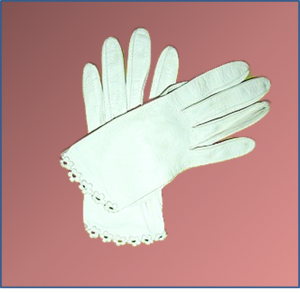Rebecca Lyles's Blog, page 10
November 8, 2014
All my exes …
 … do not live in Texas, as appealing as the country song makes that sound. But I am vexed, perplexed, and exasperated by people who feel compelled to put an X where it doesn’t belong. Most of the time there’s an S involved, and the perpetrators seem unable to tell the difference between them.
… do not live in Texas, as appealing as the country song makes that sound. But I am vexed, perplexed, and exasperated by people who feel compelled to put an X where it doesn’t belong. Most of the time there’s an S involved, and the perpetrators seem unable to tell the difference between them.
The sound made by the letter X is a combination of two other letter sounds – K and S. If you’re a small child or an adult just learning English, it’s understandable (and even cute) that you might reverse them. But the grace period on that one expires at about age five, at least for native English speakers.
Whenever I hear someone pronounce ask with an X instead of an SK sound, I imagine Lizzie Borden saying, “Papa, may I go to Abigail’s party?” That’s when he says—wait for it— “Go axe your mother.”
Regardless of how carelessly we pronounce words, the act of writing them down imposes a greater burden on us to get it right. There it is in print, and no one can be accused of hearing it incorrectly. So beware of these words that are neither pronounced nor spelled with an X:
Excalate
It’s escalate. A back-formation from “escalator,” derived from a Latin word (scalae) meaning a flight of steps. But enough of that.
Excape
Should be escape. Not something Superman used to wear.
Expecially
The word is especially. You don’t say “xpecial,” do you?
Excetera
From two Latin words, et cetera. There’s not even an S in this one.
Expresso
There is no X in the Italian alphabet, and none in your coffee. It’s espresso.
Now that you know the exact spellings, there’s no need to expound, expand the explanation, experience exhaustion, exhibit expertise, or explain extra examples.
Excellent.
Exit—stage right.
Like TextCPR on Facebook!
November 1, 2014
Seven habits of highly effective trolls
 The Urban Dictionary says a troll is “One who posts a deliberately provocative message to a newsgroup or message board with the intention of causing maximum disruption and argument.”
The Urban Dictionary says a troll is “One who posts a deliberately provocative message to a newsgroup or message board with the intention of causing maximum disruption and argument.”
If you’re a genuine troll, you aren’t reading this. If you’re not a troll, I don’t need to tell you how infuriating trolls can be and how hard it is to refrain from reacting to what they – uh – write. (I was going to write spew, but I’m trying to be nice.)
What I can do is warn you about troll-like habits that can creep into the writings of reasonable people, especially when the topic is controversial or emotional.
If you don’t want to be mugged, don’t walk alone in a bad part of town late at night. Likewise, avoid any site or discussion group known to be a free-for-all for crazies, right? But recently, even respectable business discussion groups have begun to show the signs of urban decay. It’s not safe to walk anywhere these days. The habits of trolls have made us forget what civilized—and effective—discussion is like.
[Satire alert] Here’s how to guarantee that readers will dismiss you as a troll:
1. Ignore punctuation.
cuz nobody cares if you know where commas go anyways thats not important what is this english class I don’t think its as important as having really good ideas and who are you to tell me what to do
2. Forget about grammar and spelling.
Just between you and I, me and him don’t car there all a bunch of whinners oh boo hoo
3. Jump to crazy conclusions.
So if you think we should be nice two each other, you probly support the law that makes it illegal too give negative feedback in a performance evaluation … oo let’s all go to jail!
4. Ramble and repeat yourself.
This is the worst idea ever. Writing better is not a good idea. Its a really bad idea. We definately shouldn’t due this because it’s a not-good, super-wrong, cockamamie idea. Who had this bad idea?
5. Be defensive and sarcastic.
Oh yeah? Well I suppose you think anyone who can’t write a decent sentence should be fired. Great – let’s all just pack up are belongings and leave the building. Somebody call the grammer police!
6. Engage in juvenile name-calling.
Oh grab a tissue and just grow up, you big baby. What are you, in kindygarden? You sissy bleeding-hearts make me sick. If you wimps had your way we would all be commies.
7. SHOUT IN ALL-CAPS!
OUR FREEDOM TO BE IDIOTS IS IN DANGER! DON’T YOU PEOPLE GET IT? WE’RE ALL GONNA DIE!
People exchange opinions in many ways. In business, in personal communication, and lots of places outside Internet discussion groups. Email, social media, even the back-and-forth of business proposals and responses. Most of these exchanges are civil and mutually respectful. But people resort to bullying behavior when they run out of reasoned arguments. So it’s often a signal that they’re losing the debate and have no good responses left.
Although exaggeration makes a point, no exaggeration is necessary to show you how troll-like habits kill your message and turn readers against you—even if they agree with your position.
Despite what the trolls tell you, the way you present your argument has a lot to do with whether readers consider it or discard it. And the best way to disarm a troll is to just click …
Like TextCPR on Facebook!
October 25, 2014
Gentile or genteel?
 Nowadays, most polite people try not to offend entire groups—genders, races, or religions. Those who do so on purpose are considered boorish and unenlightened, right?
Nowadays, most polite people try not to offend entire groups—genders, races, or religions. Those who do so on purpose are considered boorish and unenlightened, right?
But sometimes the well-intentioned are also clueless about these two words. It’s easy to offend without meaning to, and that’s what we want to prevent here.
Here’s the scoop:
Gentile (pronounced JEN-tyle) means non-Jewish.
genteel (pronounced jen-TEEL) means polite, well-mannered, or refined.
See the problem? You try to say something nice about a person’s manners but instead you imply a religious connection that’s not there, excluding an entire group of people. This is what the British call a sticky wicket.
You’ve no doubt seen those tiresome postcard-type quotes in decorative fonts that people post on LinkedIn, Facebook, or Twitter because they can’t think of anything original to say. They are calculated to elicit such comments as, “Hilarious!” or “So true!” One shows a vintage drawing of an 1890s woman with this text:
“All spring and summer she was a gentile Southern lady. Then football season started…”
So what’s wrong with that? Let me count the ways. Gentile, when used correctly, is capitalized and its very definition is exclusionary. The hilarious postcard quote literally says the lady was not Jewish. The word they should have used here is genteel. Even in the south, religion has nothing to do with one’s manners or enthusiasm for football. Picture a Jewish woman in a Florida State jersey asking, “So what am I—chopped liver?”
Jews are not likely to mix up these two words, so I’m probably preaching to Gentiles here. If you are one, repeat after me:
Gentile is capitalized.
Genteel is not (unless it’s the first word in a sentence like this one).
Gentiles (non-Jews) can be genteel, but they can also be boorish and rude.
Genteel (polite, refined) people can be either Jewish or non-Jewish. That includes pretty much everyone.
Got it?
Mazel Tov!
Like TextCPR on Facebook!
October 18, 2014
The kid gloves are off!
 Want a job, promotion, business success? Just search the Internet, that bottomless vat of guidance. Advice for savvy people (not idiots who would wear flip-flops to a job interview). Cuff links, neckties, necklines, hem lengths, projecting just the right image … as if these superficial details give you a secret advantage in the workplace.
Want a job, promotion, business success? Just search the Internet, that bottomless vat of guidance. Advice for savvy people (not idiots who would wear flip-flops to a job interview). Cuff links, neckties, necklines, hem lengths, projecting just the right image … as if these superficial details give you a secret advantage in the workplace.
You’ll find job-hunting tips, interview techniques, and negotiating tactics. What to say and how to respond with poise under stress. Everyone knows that sloppy clothes and a surly attitude hurt you. But neither the right suit nor an arsenal of smooth replies will get you hired or promoted. They say, at most, “I look pleasant and I’m well prepared.”
So what else is there? Hiring and promoting managers want you to be smart, and no seminar or list of “Top Ten anything” can deliver that. Unless you present multiple advanced degrees in some impressive field, it’s a perception that’s difficult to build – and easy to destroy in a few seconds.
On the job, you establish a pattern of wise decisions, display good judgment, and show your communication skills over time. If you’re looking for a job, you make sure your resume is free of spelling and grammatical errors. Most of all, don’t overlook your online persona. It’s all “out there” and searchable by current or prospective employers.
If you communicate through email, messaging, LinkedIn, Twitter, Facebook, Instagram, and even corporate web sites, here’s a tip:
Some writing mistakes make people think you are stupid.
There. I said it. I’m sorry if it sounds judgmental, but it’s meant to help you avoid embarrassment. Smart takes time to build, but Stupid can occur in an instant. Everyone makes little mistakes now and then. But, to many people, certain kinds of blunders qualify as “ignorant errors.” These are not typos made in haste. They are gaffes that imply you don’t know any better.
Ignorant errors include using the wrong word, misspelling words you should have learned in elementary school, and misquoting idioms. Here are three examples I’ve seen just today in postings from supposedly reputable business sources:
We have nothing to loose.
OK, one more time, the word you want here is lose. The next time you’re tempted to type loose, remember that it rhymes with goose, noose, and caboose. Is that really the word you want to use? (Use rhymes with lose.)
Alright stop.
I don’t care if you’ve seen this one in TV commercials or on Facebook or in song lyrics. It’s wrong. Almost, already, and altogether are words. But there is no such word as alright. It’s all right. Always.
Handle them with kit gloves.
The expression kid gloves refers to treating something carefully or delicately. It comes from elegant 18th century white dress gloves made of soft leather, the skin of young goats or lambs (kids). Nothing remotely connected with the word kit.
Go ahead. Argue that most people don’t know the difference or that they shouldn’t judge you by such things. The same could be said of those sharp business outfits and interview training. But many people do know and care, and all it takes is one of them. One who reads your social media post and blasts you in a comment. Or laughs at your email sales pitch and doesn’t call you back. Or scans your resume and doesn’t hire you. No one seems to wear kid gloves anymore.
The instant, faceless nature of online interaction lends itself to vicious attacks. Mean-spirited snipers lurk in dark Internet caves. Their criticism can be brutal, and it seems to last forever in cyberspace. So take care.
There be grammar trolls.
Like TextCPR on Facebook!
October 11, 2014
The game of Gossip
 Remember the old childhood game called Gossip (or Telephone)? A whispered phrase was passed from one party guest to another. The object was to see how that phrase had changed by the time it got to the last person. “Going to the dance” turned into “Glowing doo-doo France” and hilarity ensued.
Remember the old childhood game called Gossip (or Telephone)? A whispered phrase was passed from one party guest to another. The object was to see how that phrase had changed by the time it got to the last person. “Going to the dance” turned into “Glowing doo-doo France” and hilarity ensued.
This game teaches us that it’s risky to repeat expressions you only think you’ve heard correctly—especially if you don’t quite know what they mean. Here are three commonly mangled expressions I’ve heard recently:
Chalk-full
It’s chock-full. Its origin, from middle English, is obscure. But it means full to the limit, at capacity. It has nothing to do with those sticks of calcium sulfate they used in schools before whiteboards were invented.
Half-mask
As in, “His pants were at half-mask.” The expression half-mast, refers to lowering a flag to honor a person or event. That’s the meaning that applies to baggy trousers. A half-mask is what the guy in “Phantom of the Opera” wears on his face.
Ying and yang
The complementary forces in Chinese philosophy are yin (no g) and yang. Ying and Yang sound like cute names for twin pandas, though.
You’ve probably heard someone use at least one of these phrases incorrectly. Yeah, well If that person jumped off a bridge, would you jump off too? Don’t be the person who passes it on, perpetuating the mistake. Before you repeat some idiom you’ve only heard, look it up in print or verify its meaning. And, no, print on Twitter, Facebook, or Internet discussion groups does not count. That’s where English goes to die.
The game of Gossip is fun for children’s birthday parties. But when you’re all grown up and people laugh because you’ve said chalk-full, half-mask, or ying and yang, they’re not having fun, they’re making fun.
And if they’re making fun because you wear your pants at half-mast, you’re on your own.
Like TextCPR on Facebook!
October 4, 2014
Ironic—literally surreal!
 When you use one of these three words to add emphasis or credibility to a statement, it might well have the opposite effect. Why? Because they’re used incorrectly so often that few people take them seriously. They can make you sound immature and silly.
When you use one of these three words to add emphasis or credibility to a statement, it might well have the opposite effect. Why? Because they’re used incorrectly so often that few people take them seriously. They can make you sound immature and silly.
Just ask Alanis Morissette. In 1996 she released a song called “Ironic.” It describes a number of negative events and repeatedly asks the question, “Isn’t it ironic? Don’t you think?” An army of grammar trolls rose up to condemn, ridicule, and parody the song. The situations in the song, you see, were not all truly ironic.
One of Morissette’s non-ironies was “A black fly in your Chardonnay.” Another was “Rain on your wedding day.” Critics blasted her because both of these situations are merely unfortunate. Ironic means happening in a way that is opposite from what is expected, and usually causing wry amusement. A bit of bad luck or a mere coincidence does not qualify as ironic.
When people say literally for emphasis, they usually mean figuratively—just the opposite:
It was so funny I literally split my sides laughing!
So… did you go to the hospital? Was it painful? Did you have stitches?
The third overused word is surreal, as in:
We were both wearing the same dress. It was so surreal!
Surreal seems to need a modifier—so—to add weight to the statement. Apparently surreal (weird, bizarre, having the qualities of a dream) is not strong enough by itself. In any case, showing up at a party in a dress identical to that of another guest is awkward, but hardly a nightmare.
All three of these words, used singly or in combination, imply exaggeration. They alert your audience to activate the BS filter and prepare to question what you’re saying.
So if you say, “I literally fell down laughing,” you’d better be describing a loss of balance ending with you on the floor. And if you were seeing melting clocks and a giraffe aflame, you could correctly describe it as surreal. Rain on your wedding day could be ironic… if you were marrying a TV meteorologist who had promised sunny weather. On the air.
But a black fly in your Chardonnay? That’s just disgusting.
Like TextCPR on Facebook!
September 27, 2014
Back-formations
 What is a back-formation, you ask? In etymology, back-formation is “the process of creating a new lexeme, usually by removing actual or supposed affixes and resulting in a neologism.”
What is a back-formation, you ask? In etymology, back-formation is “the process of creating a new lexeme, usually by removing actual or supposed affixes and resulting in a neologism.”
Now that we’ve cleared that up, let’s talk about where they come from and how to use them.
First you take a perfectly good noun – like burglar. Since it ends in –ar, it sounds like someone who performs an action. But burglar was not formed from an existing verb, although it suggests “to burgle.” It’s a silly word, but that verb, created from a noun, is an example of a back-formation. Burgle is one of the oldest common back-formations, dating back to the late 1800s.
Comedians often use back-formations because they sound funny, although many of them have become standard and accepted usage in dictionaries and other references. But you can’t just take any word and twist it into another part of speech. If a burglar is one who burgles, is a scholar one who schols? Do butlers buttle? Sometimes it just doesn’t work.
A few awkward and irritating back-formations have found their way into business communication. They always feel like speed bumps in the conversation. The speaker is going along, doing just fine, and then—wait—what?
Here are some back-formations and words you might say instead:
surveil (comes from surveillance)—Say observe or monitor.
liaise (comes from liaison)—Say contact or connect.
conversate (comes from conversation)—yuck! Say talk or converse.
enthuse (comes from enthusiasm)—Say excite.
These bumbling, awkward words always make me think of a public official in court, being accused of malfeasance in office. I can hear him saying, “Your Honor, I swear that I have not malfeased, I am not currently malfeasing, and I shall not malfease in the future.”
Clunk (”Law and Order” gavel sound)
Guilty!
Of back-formation.
Like TextCPR on Facebook!
September 20, 2014
Medical Jeopardy
 America’s population is aging, and all of us will eventually be afflicted with some medical condition or other. No one is expected to spell and pronounce them all correctly, but if it’s your ailment, you can at least make an effort.
America’s population is aging, and all of us will eventually be afflicted with some medical condition or other. No one is expected to spell and pronounce them all correctly, but if it’s your ailment, you can at least make an effort.
You probably know some codger who complains about his Arthur Itus (arthritis) or very close veins (varicose veins). And he might have friends with Al Heimers (Alzheimer’s) or pain in their sackarilliac (sacroiliac). He might even have an annerism (aneurism) or a heart attact (heart attack).
But if you’re writing or speaking for the public, there is no excuse for some of the errors I’ve seen recently. Correct spellings and pronunciations are available from countless sources. Mangled medical terms in print make me think of the TV game Jeopardy. Silly answers demand silly questions.
Lime disease (Lyme disease) [What do you get from drinking too many margaritas?]
Planter fashionitis (plantar fasciitis) [What is a farmer's obsession with what to wear?]
Lumber pain (lumbar pain) [What do you feel when you get the bill for that new deck?]
Gangreen (gangrene) [What do street thugs wear on St. Patrick’s Day?]
If you want sympathy for your medical condition, try to avoid getting Creutzfeldt-Jakob disease or Mandibulofacial Dyostosis. They are impossible to pronounce. And writing their names would fill up your Twitter character allotment before you could even whine about it. If you receive such a diagnosis, ask for a second opinion—something with a shorter name.
May you live a long and healthy life with none of these maladies. But if you do contract something and insist on writing about it, I recommend a disease that’s easy to spell and pronounce.
Like gout.
Like TextCPR on Facebook!
September 13, 2014
Chasin’ French
 English communication is full of words and phrases that originated in French. Some survived relatively intact—mousse, attaché, and carte blanche, for example. Meanings and spellings are unchanged, and most people pronounce them more or less correctly.
English communication is full of words and phrases that originated in French. Some survived relatively intact—mousse, attaché, and carte blanche, for example. Meanings and spellings are unchanged, and most people pronounce them more or less correctly.
But a few French expressions have morphed into something comically unrecognizable, leaving the average person with a dilemma. Do I use the words at all, and if so, how do I pronounce them?
It doesn’t help that some words stopped in Britain along the way and were brutally anglicized before arriving in the USA. Brits are firm in their resolve to pronounce valet to rhyme with ballot and filet to rhyme with skillet. But they have their own history with France and I’m staying out of it.
So the well-intentioned American must choose. Do you want people to think you’re a snob (a capital crime in some parts of the country) or a hick (social ostracism in others)? Here are some suggestions for avoiding embarrassment:
Envelope: AHN-vuh-lope or EN-vuh-lope? Although the first is closer to the French pronunciation, you won’t embarrass yourself with either pronunciation.
En route: ahn-ROOT or in-ROUT? The first is closer to French and the second sounds like a conscious attempt to distance yourself from them furriners… and proud of it, dagnabbit! You can’t go wrong with the first.
Ah, and here’s a threesome (I want points for not making a ménage à trois joke):
1. Chaise longue: Original French, simply means long chair. Pronounced shezz-lohng.
2. Chaise lounge: Americans, observing that it was something used for lounging, assumed that longue was French for lounge and apparently thought they were translating it. Pronounced shezz-lounj or shayz-lounj.
3. Chase lounge: Metamorphosis complete. Great. Now neither word has anything to do with the original French. Chase is just a misspelling of the French word for chair and has no connection with anything. Pronounced chase-lounj.
Option #1, although correct, might get you accused of uppitiness. But Option #3, regrettably, suggests a lack of polish. To be safe, follow the lead of thousands of furniture dealers across the country and choose Option #2.
Just remember – it has nothing to do with chasing. Although, if you are tired from chasing someone (or something), you can always lounge on it afterward.
And, if it makes you feel better, you may call it an après-chase-chaise.
September 6, 2014
Using the right F-word
 Seriously now, you didn’t think I meant that, did you? I’m talking about two word pairs that people often confuse, especially in business conversations:
Seriously now, you didn’t think I meant that, did you? I’m talking about two word pairs that people often confuse, especially in business conversations:
flesh out or flush out?
and
farther or further?
Picture a planning session. The presenter says we needed to flush out an outline, when he means “to add detail.” Suddenly, I can’t focus on the proposal. That mental picture of the project in a toilet bowl, swirling its way down to the sewer… does the speaker know he has just suggested discarding the whole plan?
People who use flush out in this way mean flesh out, as in adding meat to the bones (or skeleton) of the plan. There is no room for debate on this one. Flush out, in this situation, is always wrong. Flesh out is the phrase to use when you mean that you have a framework, and now you need to develop it further – or is it farther?
That brings me to the next word pair dilemma: farther or further. Traditionally, farther has been used in describing distance:
The finish line is farther away than I thought.
Further has been used in a metaphorical or abstract sense:
Let’s explore this idea a little further.
These are still good general rules, and you can remember that farther contains the word far, as in measurable, physical distance. But the distinction between the two words has become so hazy that even experts disagree. Many uses are ambiguous and it’s hard to be sure which rule applies. For example:
Building this wall is such hard work, I don’t want to continue any (farther or further?).
The length of the wall represents a physical distance, but the amount of effort required is abstract. Unless it’s clearly a measure of distance, further is the safer choice. No reasonable person will criticize you for using either word here.
So, farther down the road, if you’re discussing your Great Idea in an attempt to flesh out your plan and someone says you should flush it out, just collect your things, leave, and refuse to discuss it any further.



